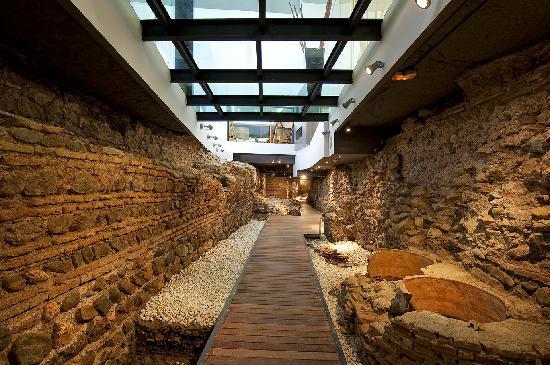 They say that when you dig a metre into the ground in Rome you immediately stumble upon a wealth of archaeological findings. The same could be said of Málaga, and while this might surprise some who associate this part of southern Spain primarily with modern-day coastal resorts, the truth is that Málaga is one of the oldest cities in Europe.
They say that when you dig a metre into the ground in Rome you immediately stumble upon a wealth of archaeological findings. The same could be said of Málaga, and while this might surprise some who associate this part of southern Spain primarily with modern-day coastal resorts, the truth is that Málaga is one of the oldest cities in Europe.
In fact, people were trading at its port when Rome was still a provincial backwater, for Malaka as it was then called, was originally founded by Phoenician traders over 2,500 years ago. Together with the local Iberians they created a thriving culture forming part of an extensive trading network that linked this part of the world with Cádiz, Lisbon, Cathage and modern-day Lebanon on the other side of the Mediterranean.
 Many are therefore the artefacts and archaeological finds encountered here, but even so every new major discovery sends a ripple of excitement through the city, as it adds pieces to the puzzle of its past. The latest one involves the foundations of the Aduana customs building, where a thick ancient wall was exposed during restoration work. The various subterranean viewing points open to visitors reveal over two thousand years of history in features such as the Arab maritime wall in the port, which is visible below a glass floor at the new Museo de Málaga.
Many are therefore the artefacts and archaeological finds encountered here, but even so every new major discovery sends a ripple of excitement through the city, as it adds pieces to the puzzle of its past. The latest one involves the foundations of the Aduana customs building, where a thick ancient wall was exposed during restoration work. The various subterranean viewing points open to visitors reveal over two thousand years of history in features such as the Arab maritime wall in the port, which is visible below a glass floor at the new Museo de Málaga.
The section revealed is of a defensive wall exactly at the point where it meets the labyrinthine medina, and in so doing conjures up an image of what the city was like all those centuries ago. What remains undiscovered below the Málaga surface is a large gateway and ever-deeper layers of Arabic, Roman and Phoenician ruins, so next time you sit at an outdoor café in the city just imagine what lost worlds lie deep beneath your feet. There are still Roman baths and salting troughs down there too, as well as remnants of entire city quarters.
 Some finds, such as the port details by Roman architect Vitrivio that are visible under the glass floor at the new Vincci Hotel in the Posada del Patio, are relatively newer but nonetheless of great historic value. The pieces in the jigsaw puzzle are slowly but surely taking place, shedding light on a succession of Málagas that thrived as a port city through a variety of different civilisations. Seen from this perspective, our era is simply the latest chapter in a long and varied story that makes Málaga one of the most exciting historic cities in Europe.
Some finds, such as the port details by Roman architect Vitrivio that are visible under the glass floor at the new Vincci Hotel in the Posada del Patio, are relatively newer but nonetheless of great historic value. The pieces in the jigsaw puzzle are slowly but surely taking place, shedding light on a succession of Málagas that thrived as a port city through a variety of different civilisations. Seen from this perspective, our era is simply the latest chapter in a long and varied story that makes Málaga one of the most exciting historic cities in Europe.

